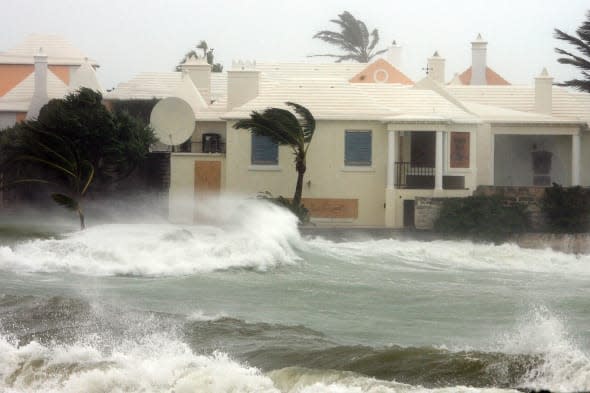Preparing for Hurricane Season Includes Filling These Financial Gaps

By Kimberly Palmer
So far, this year's hurricane season has been relatively quiet. But meteorologists say that could soon change. In fact, earlier this year, the National Oceanic and Atmospheric Administration predicted an above-average hurricane season, with up to 11 hurricanes that could form in the Atlantic Ocean, and experts say they're still expecting big storms to hit.
To prepare for the possibility that hurricanes will soon bear down on the tropics and parts of the United States, financial experts suggest that anyone in the path of potential storms should get their homes, and their finances, ready. Preparations include securing windows, clearing debris out of gutters, stocking up on food and flashlights, and stashing cash and valuables in easy-to-grab places. The National Endowment for Financial Education suggests storing all your important documents together, along with cash and credit cards, so you can quickly get them and go if you need to leave your home in a hurry. Banks and ATMs can shut down during emergencies, so it's a good idea to have cash on hand in advance. The nonprofit also recommends keeping your insurance company's contact information handy in case you need to call it on the go and get information about reimbursements and coverage.
Now is also a good time to check up on what your homeowners insurance or rental insurance covers. According to the 2010 MetLife Auto & Home Insurance Literacy Survey, many homeowners don't know what their policy covers and sometimes end up paying for repairs that would have been covered by their policies.
The survey of about 1,200 adults found that almost half of all homeowners don't know how much coverage they have for the contents of their home, and one in three don't know how much their home is insured for. MetLife warns that this "knowledge gap" can lead to costly surprises and recommends that homeowners review their policies more closely.
Here's a quick way to test your knowledge on six common coverage gaps:
1. Do you think your insurance policy would reimburse you for earthquake damage?
The answer, according to MetLife, is almost always "no," unless you purchased a separate earthquake policy. Almost 30 percent of survey respondents thought the answer was "yes," and another 30 percent didn't know.
2. If your sump pump backs up and your house floods as a result, will your homeowners insurance policy reimburse you for the damage?
Despite the fact that most people believe the answer is "yes," it is unfortunately not the case. That means homeowners could have to shell out cash for costly repairs, unless they specifically added (and paid extra for) coverage for sump-pump failures.
3. If new building codes mean you need to upgrade undamaged parts of your house, will your policy reimburse you for those costs?
While nearly two in three survey respondents said "yes," the answer is "no," according to MetLife. In most cases, policies don't pay for upgrades, even those that are mandated by new laws, in undamaged parts of homes, unless you take out additional "ordinance or law" coverage.
4. If you go away for the winter and your pipes freeze and break, will your policy cover that damage?
While policies remain valid even when you're on vacation or away for a long time, you have to take certain steps to protect your home, or you might be liable for the costs. For example, if you fail to keep the home heated or pipes drained, MetLife explains that any damage that results from freezing might not be covered.
5. Say you have auto and home insurance with the same company, and both your vehicle and house are damaged in a tornado. Will you pay one deductible or two separate ones for each item?
Chances are you need to pay two deductibles, even if both the car and house are damaged by the same storm. (Although MetLife says a handful of insurance companies, including MetLife itself, offer exceptions to this rule.)
6. If a fire destroys your house, will insurance pay the full cost to rebuild?
The answer is most likely "no," because most insurance policies cap their coverage -- and take depreciation into account when calculating the value of personal possessions. That means homeowners could be insured for far less than they think. Seven in 10 survey respondents said they thought their policy would pay the full cost to rebuild after a natural disaster.
While these gaps could end up costing homeowners a lot of money, policies also provide coverage that many people don't realize they have. For example, policies usually cover the belongings of college students (the sons and daughters of policy holders) who live on campus. They also often cover electronic data (including music) and damage to appliances caused by a power surge.
The bottom line? Policies vary, and if you have a particular concern, it's usually relatively easy to add additional coverage to your existing policy – as long as you know about the risk before any damage takes place.
More from U.S. News:
8 Energy-Efficient Home Improvements That Save Money
It's Flood Season. Are You Protected?
12 Steps to Designing Your Financial Roadmap
More on AOL Real Estate:
Find out how to calculate mortgage payments.
Find homes for sale in your area.
Find foreclosures in your area.
Find homes for rent in your area.
Follow us on Twitter at @AOLRealEstate or connect with AOL Real Estate on Facebook.

